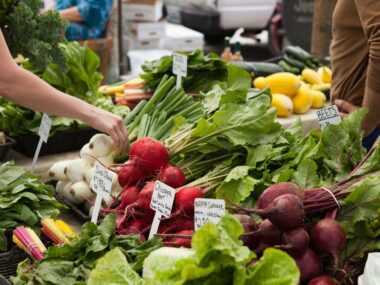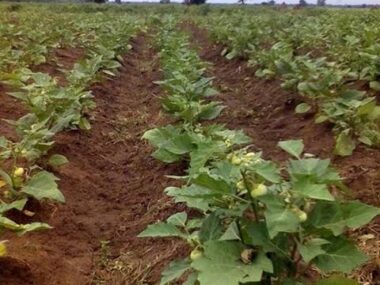Food security is a pressing global issue that encompasses the availability, accessibility, and utilization of food to meet the nutritional needs of individuals and communities. Ensuring food security involves addressing various agricultural challenges that arise from factors such as population growth, climate change, resource depletion, economic disparities, and geopolitical conflicts.
This essay explores the complexities of food security and the significant agricultural challenges faced on a global scale.
Population Growth
One of the primary challenges to food security is the ever-increasing global population. With the world population projected to reach 9.7 billion by 2050, the demand for food is expected to surge significantly.
Satisfying the dietary requirements of this expanding population necessitates substantial increases in food production. However, the ability to meet this demand is constrained by various factors, including limited arable land, water scarcity, and environmental degradation.
Limited Arable Land
Arable land, essential for cultivating crops, is finite and subject to degradation due to urbanization, deforestation, and soil erosion. Expansion of agricultural land often occurs at the expense of valuable ecosystems, leading to biodiversity loss and ecosystem degradation.
Moreover, the quality of existing arable land is deteriorating due to unsustainable farming practices such as monocropping, excessive use of chemical fertilizers and pesticides, and overgrazing. Reversing land degradation and promoting sustainable land management practices are crucial for enhancing agricultural productivity and ensuring long-term food security.
Water Scarcity

Water scarcity poses a significant challenge to agricultural sustainability and food security, particularly in arid and semi-arid regions. Agriculture is a major consumer of freshwater resources, accounting for approximately 70% of global freshwater withdrawals.
However, inefficient irrigation practices, water pollution, and over-extraction of groundwater exacerbate water scarcity and compromise agricultural productivity. Adopting water-saving irrigation techniques, implementing integrated water management strategies, and investing in water infrastructure are essential for mitigating water stress and safeguarding food security.
Climate Change
Climate change presents formidable challenges to agricultural productivity and food security by altering temperature patterns, precipitation levels, and the frequency of extreme weather events. Rising temperatures and changing precipitation patterns disrupt traditional farming practices, leading to crop failures, reduced yields, and loss of biodiversity.
Smallholder farmers, particularly in developing countries, are disproportionately affected by climate change due to their limited adaptive capacity and reliance on rain-fed agriculture. Implementing climate-resilient agricultural practices, developing drought-tolerant crop varieties, and enhancing early warning systems are critical for building resilience to climate-related risks and ensuring food security in a changing climate.
Resource Depletion
The unsustainable use of natural resources such as land, water, and energy poses significant threats to agricultural sustainability and food security. Intensive agricultural practices contribute to soil degradation, nutrient depletion, and loss of biodiversity, undermining the long-term viability of food production systems.
Additionally, the excessive use of chemical fertilizers and pesticides contaminates soil and water resources, endangering human health and ecosystems. Transitioning towards agroecological farming systems, promoting organic farming practices, and improving resource efficiency are essential for conserving natural resources and enhancing food security.
Economic Disparities
Economic disparities exacerbate food insecurity by limiting access to nutritious food for vulnerable populations, including low-income households, smallholder farmers, and marginalized communities. Inadequate infrastructure, market inefficiencies, and unequal distribution of resources further exacerbate food insecurity, particularly in rural areas and urban slums.
Addressing socio-economic inequalities, promoting inclusive economic growth, and strengthening social safety nets are essential for reducing food insecurity and ensuring equitable access to food for all.
Geopolitical Conflicts
Geopolitical conflicts, civil unrest, and humanitarian crises pose significant threats to food security by disrupting food production, distribution, and access. Conflict-affected regions often experience food shortages, displacement, and humanitarian emergencies, exacerbating food insecurity and malnutrition.
Moreover, protracted conflicts and political instability hinder long-term development efforts, undermining the resilience of agricultural systems and exacerbating food insecurity. Resolving conflicts, promoting peacebuilding initiatives, and providing humanitarian assistance are crucial for addressing food insecurity in conflict-affected regions.
In conclusion, food security is a multifaceted challenge that requires comprehensive and integrated solutions to address the complex interplay of factors affecting agricultural productivity, access to food, and nutritional outcomes.
By addressing issues such as population growth, limited arable land, water scarcity, climate change, resource depletion, economic disparities, and geopolitical conflicts, stakeholders can work towards building resilient and sustainable food systems that ensure food security for present and future generations. Collaborative efforts at the local, national, and global levels are essential for achieving the goal of zero hunger and promoting sustainable development worldwide.
Related Tags
Taiwo Olawuyi
Taiwo Olawuyi is a highly dedicated and passionate professional blogger, renowned for her ability to create captivating, informative, and engaging content in the realm of health and wellness. She holds a Bachelor's degree in Political Science from Olabisi Onabanjo University and a Master's degree in Adult Education from the prestigious University of Ibadan. Her profound passion for health and wellness, coupled with her unwavering dedication to her audience, serves as a constant source of inspiration and enlightenment for readers worldwide.










